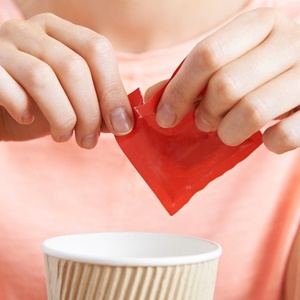
You should think twice before replacing your sugar with artificial sweetener.
Although you might think you're on to something healthier, the effects of artificial sweeteners are not that sweet. Several studies have shown that artificial sweeteners available on the market are not that safe to use. And now there is more evidence that artificial sweeteners may cause diabetes.
New research may help explain the reported link between the use of artificial sweeteners and diabetes, scientists say.
Link between sweeteners and diabetes
Researchers at Yale University School of Medicine say that in nature the intensity of sweetness reflects the amount of energy present. But in modern-day life, the body's metabolism is fooled when a beverage is either too sweet or not sweet enough for the amount of calories it contains.
That means that a sweet-tasting, lower-calorie drink can trigger a greater metabolic response than a drink with higher calories, they said.
"A calorie is not a calorie," explained senior author Dana Small, a professor of psychiatry.
"The assumption that more calories trigger greater metabolic and brain response is wrong. Calories are only half of the equation; sweet taste perception is the other half," Small said in a university news release.
A 'mismatch' in the brain
When a "mismatch" occurs, the brain's reward circuits don't register that calories have been consumed, the researchers said. Many processed foods have such mismatches, such as yogurt with low-calorie sweeteners.
"Our bodies evolved to efficiently use the energy sources available in nature," Small said. "Our modern food environment is characterised by energy sources our bodies have never seen before."
Small and her colleagues said the study may help explain the link between some artificial sweeteners and diabetes discovered in previous research. The topic remains controversial, however, and experts agree more research needs to be done. The study was published in the journal Current Biology.
Sugar in South Africa
South Africans are indeed sugar addicts, which led the government to implement a sugar tax to reduce the risk of obesity. According to the SA National Health and Nutrition Examination Survey, the average South African now consumes 17 teaspoons of sugar and similar sweeteners a day. Health24 content producer Stefni Herbert, a self-acclaimed sugarholic, quit sugar for 14 days. You can read all about her challenge.
Curb your cravings
If you have a sweet tooth, it is best not to replace your bad habit with artificial sweetener, as studies have shown. Rather include healthy, whole snacks such as fruit that contain natural sugars to give you energy and help satisfy your cravings.
Image supplied by iStock




 Publications
Publications
 Partners
Partners










